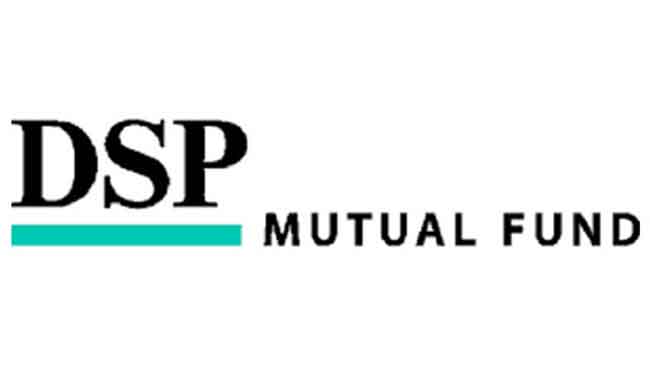
DSP Mutual Fund
The severe impact of corona virus is evident
across the different sectors in the country. Providing deeper insights into the
impact, DSP Investment Managers released a report ‘Sector views during Covid19’
discussing the impact of the pandemic on different sectors. The report
classifies sectors into Highly Impacted, Moderately Impacted and Mildly
Impacted sectors analyzing the impact and the outlook for each of the sector.
While NBFCs, Banking, Retail, Textile, IT, Real Estate, Auto and Metals sectors
amongst others may be highly impacted, the report reveals that Telecom, Power,
Pharma and Agri input would only be mildly impacted. Sectors like Consumer
Staples, Media, Consumer Durables/ Electricals, Chemicals, and insurance are
expected to be moderately impacted.
Telecom, Power, Pharma and Agri Input
sector to escape the wrath of coronavirus
Telecom
companies may emerge as one of the positive beneficiaries of the current
situation, with data traffic having seen a 20-30% increase globally in this
period. Subscriber growth for telecom companies is expected to see a sharp dip
in this period, but companies should also see reduced churn in the subscribers.
In the Power
sector, electricity demand has declined by 25-30% in peak and base demand.
Merchant volumes and prices have declined, and demand is likely to see a
recovery by Sep 2020. Low fuel prices, especially coal is expected to help
margins. Balance between demand and supply has got pushed by a year. DSPIM
expects a deficit in power supply by FY24-FY25 (compared to earlier expectation
of FY22-FY23).
As an
essential service, pharma sector is less disrupted and likely to be the least
impacted due to the COVID-19 pandemic. The flow of raw materials from China has
resumed post a short disruption and hence is unlikely to impact revenues
meaningfully. DSPIM expects 4QFY20 results to show strong growth on the back of
favorable dynamics and 1QFY21 would be relatively softer as inventory at the
patient level gets depleted.
Agri input, yet another sector classified as essential service, will see mild impact as the monsoon outlook looks positive and logistics is given priority by various states and district authorities. Finally, the rabi output has been robust for the farmers in general and with better water availability situation during kharif season and expectation of normal monsoon the outlook is positive.
Coronavirus to delay the recovery in
Auto and Cement demand to FY22
Given the sharp
deceleration in GDP growth over FY19-21, and the demand, supply-chain and
economic impact of the lock downs, a revival in auto sector now only seems
likely in FY22 (an a very favorable base). Quite a few of the companies are now
trading at trough valuations, making it an opportune moment, to position the
sector for recovery in FY22.
The cement sector is quite
likely to see a double digit decline in volumes in FY21 given the pandemic's
high impact. Balance sheet of most cement companies are quite comfortable
despite the capacity additions in the recent. Quite a few of the companies are
now trading at trough valuations and below replacement cost, making it an
opportune moment, to position the sector for recovery in FY22.
Economic downslide to cut discretionary
spends; IT and consumer durables/electronic to face the burnt
IT sector, unlike past periods of slowdown, is witnessing both a supply side and demand side impact. 30% of IT spends are discretionary in nature, and these are likely to be cancelled or delayed for now while the remaining 70% will face tremendous pricing pressures (20-50% from 60% of clients as per industry research firm ISG). Revenue growth for most IT services companies are likely to see a smaller impact in Q4, while Q1 and Q2 would see steeper revenue declines (mid-single digit to low double digit YoY).
In consumer durables, the demand scenario is expected to remain grim in H1FY21 for both B2B and B2C segments, while replacement demand, which constitutes ~30% of sales, should continue to see traction. While B2C will revive faster, we expect B2B segments to struggle for a longer period with potential postponement of private capex and a gradual spending uptick from the government
Banking and NBFC sector to come under
further stress due to subdued economic growth and low earnings predictability
Banking sector is a proxy
of health of economy and will witness subdued loan growth, rising bad loans
especially in retail credit (16% CAGR loan growth in last 8 years) and delayed
recovery for corporate sector which were under stress post demonetization, GST.
All parts of lending financials (PSU banks, Private banks and NBFCs) now trade
below one standard deviation of the long period average multiples.
Over the last 18 months, NBFC / HFC sector has seen liquidity challenges turn into solvency issues for some and strategic changes in business model for several others. Headline valuations appear attractive however, earnings predictability for many companies is low due to changes in business model and stress in wholesale lending and structured credit portfolio.
Social distancing and Lockdown will
take a toll on Retail and Textile sector
Social distancing is
expected to significantly impact the retail sector over near term. Within
various retailers, apparel retailers are the most impacted followed by food
retailer (restaurant) and grocery retailers are the least impacted.
Most of the customers for the textiles companies are retailers. Since, most of the apparel retailers are facing challenges at their end because of lockdown, the same is showing an impact via reduced orders for companies.